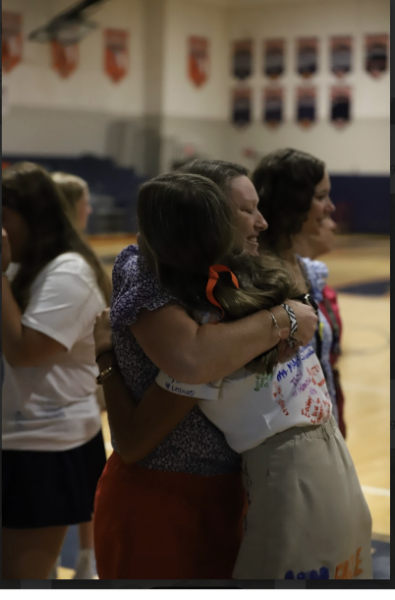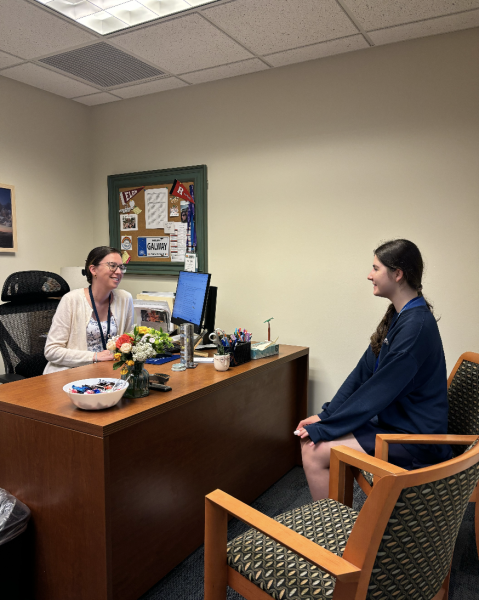Editorial: We Need to Go Further to Recognize Student’s Academic Success
May 23, 2022
The mission of The Benjamin School is to provide a challenging college preparatory education to a diverse student body in a structured, nurturing community environment. The School motivates students to master the skills of learning, communicating and evaluating choices, and encourages them to grow intellectually, socially, morally, aesthetically, and physically to their fullest individual potential.
The School’s mission statement projects our overall goal and purpose. While Benjamin certainly grants students the ability to improve in countless facets of our lives, The Pharcyde has noticed a source of ambiguity within the mission statement; how does the School “motivate students to master the skills of learning”? Are we effectively quantifying or measuring that students have mastered the skills of learning?
In order to evaluate if Benjamin has truly encouraged its students to master the skills of learning, The Pharcyde has sorted the School’s academic recognitions into three tiers.
Tier 1 – Self-Driven Recognition: These awards are awards that students will obtain based on how hard they work in the classroom; do the job, they will receive recognition. Under this category falls the Head of School List, High Honors List, and Honors List– all based on a student’s semester GPA–, induction into the Cum Laude Society, earning the National Merit semifinalist status, AP Scholar recognition, and becoming the valedictorian and salutatorian for one’s respective class.
Tier 2 – Accepted Recognition: Within Benjamin, there are various organizations and societies to which one is invited to apply in order to obtain recognition. Within this tier are the National Honor Society, Mu Alpha Theta, National Art Honor Society, Quill and Scroll Society, the Engineering Certificate Program, Pathfinders Awards, and the Marshall Benjamin Scholarship.
Tier 3 – Out of Students’ Hands: Most of the academic recognitions from the School are based on their own feats and what they do in order to garner their recognition, However, some recognitions like the Book Awards– which the School is doing away with– and Class Awards, are ultimately decided by factors that are outside the control of the students who are set to achieve those awards.
Throughout the years, the School has evolved and with it has, of course, come change in every part of the school, including the academic recognition of its students. It is evident that each of these tiers has undergone change recently, and the result is far less recognition of academic achievement than a school with our mission statement should offer.
A few years ago, the School altered its system for calculating students’ GPA, increasing the boost for taking Honors– from 0.33 to 0.50– and AP– from 0.50 to 1.00– classes. Obtaining achievements like Head of School List, where a student must exceed a 4.10 semester GPA, becomes much easier when their GPA is much more inflated. It also negatively weighs regular, unweighted courses in terms of their impact on the reception of such awards; despite earning high grades in these courses, the GPAs of high-achieving students often drop because of their lack of additional GPA points.
In a recent presentation to parents entitled Navigating and Evolving Admissions Process, Upper School Academic Dean Mrs. Caroline Guzman related that 62% of senior grades in the first semester were As. “That’s remarkable, and I think it shows a number of things. Number one, it shows really how great our kids are… secondly, it also shows how supportive the School is when our kids get here,” Mrs. Guzman said. Further, Mrs. Guzman revealed that “91% of all their grades are As and Bs, and 37% of the class has a GPA above 4.0.” The Pharcyde agrees that we are great and supported, but we also worry that those final two statistics diminish the truly exceptional accomplishments of our most academic peers. Should 40% of the senior class share the distinction of a hyper-perfect GPA? What does being the best actually mean anymore?
This can be seen by the ever-rising number of students receiving the end of semester accolades, or perhaps a better term for them would be secret letters sent home. The School has told The Pharcyde that it can not publish the students who achieved the Head of School List, High Honors List, or Honors List.These students’ recognition would come solely in the form of a letter sent home to parents. The lack of public acknowledgment does not appropriately honor students who work hard throughout a semester. They deserve the public applause that student-athletes get multiple times a year in assemblies and signings. They should be able to know who their academic peers are in our community.
The School does a good job encouraging its students to spread their wings when they excel in certain subjects. The School brought students back to the Brain Bee competition this year, allowing those who have an interest in science to express themselves, but why is there not more for students to exemplify their love for a certain subject? Sure, Spanish students have Conferencia as a way to do this, but why not allow students to take the National Spanish Exam. We have Mu Alpha Theta as a club for math students, but there should be one for History or English.
Additionally, the School needs to do more to recognize excellence. When seniors are granted Pathfinders nominations, there shouldn’t just be a two minute video sent out listing the names of those who achieved the honors. The School should explain why these students are deserving of such high honors; share their stories. Simply, we are asking that recognition go beyond just a name on a list or a letter sent home but serves as an honor and motivator for others. Juniors should look at the seniors who received Pathfinder nominations and be encouraged to try to obtain an award in the following year rather than just seeing it as a normal honor too few of them will obtain themselves.
A tradition for countless years here at Benjamin, the School has chosen to remove Junior Book Awards from the Spring Awards program. The awards, usually sponsored by local alumni associations of various colleges and universities, had been presented to students who, having met myriad criteria, were selected by a faculty vote. Last Spring, a dozen such awards were presented on behalf of colleges and universities such as Harvard University, Yale University, Sewanee (The University of the South), Kenyon College, and Union College. According to Mrs. Guzman, other schools have also stopped giving Junior Book Awards and the program is an“outdated way to recognize kids.” The College Counseling team is spearheading options to replace these awards with a “Benjamin version” of each. These awards had strict academic criteria; will the Benjamin versions have a similar criteria to this, or will they be watered down in order to make them more accessible? Additionally, these are certainly resume-boosters for when students apply for college. Will Benjamin’s version have the same prestige as the institutionally defined Book Awards? Mrs. Guzman thinks so, but these awards will certainly be more difficult to recognize for universities around the country.
Is it fair to students who excel in the classroom to understate their abilities? Recognition of excellence in any position is something valued at The Benjamin School, but academic excellence seems to be thrown under the rug, something that the School has become less and less compelled to celebrate. As a result, we are taking a stand on behalf of the people who deserve recognition. We will not print the names of non-academic award winners until we, as a school, fully recognize the academic achievements of these students.
The School needs to recognize those who are academically exceptional. Their hard work doesn’t deserve to go unnoticed.
*This editorial is the opinion of The Pharcyde and therefore is not attributed to one singular person.










